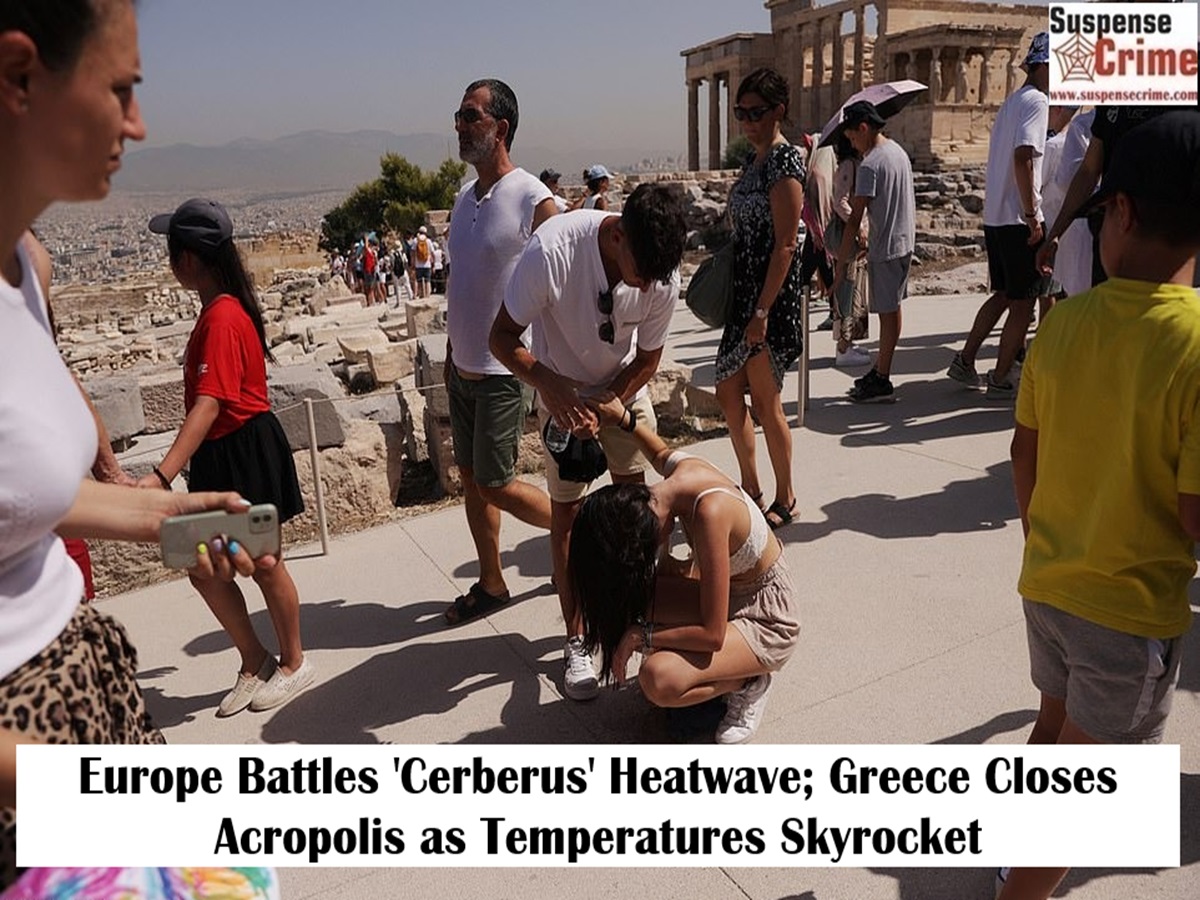
Suspense crime, Digital Desk : A brutal and dangerous heatwave, nicknamed "Cerberus" after the three-headed monster of Greek mythology, is sweeping across Southern and Central Europe, forcing authorities to take emergency measures as temperatures climb to life-threatening levels.
In Greece, the heat is so intense that officials made the decision to close one of the world's most famous landmarks, the Acropolis in Athens, during the hottest part of the day to protect tourists and staff. With temperatures forecast to hit a scorching 43°C (109°F), the Red Cross has been deployed to provide water and assistance to visitors struggling in the extreme conditions. The government has also issued urgent warnings about the high risk of wildfires across the country.
Meanwhile, Italy has placed 15 of its cities, including major tourist hubs like Rome, Florence, and Bologna, on red alert. The Italian Ministry of Health has strongly advised residents and visitors to stay indoors between 11 a.m. and 6 p.m., avoid direct sunlight, and care for the elderly and vulnerable. The severity of the situation was highlighted when a British tourist collapsed from the heat near the Colosseum in Rome.
The punishing heat isn't confined to Greece and Italy. Spain, particularly in its southern regions, is enduring soaring temperatures, while nations further north, including France, Germany, and Poland, are also experiencing extreme and unseasonable heat.
Scientists and meteorologists are pointing to climate change as a key driver of the heatwave's intensity and duration. The World Weather Attribution group, a team of climate scientists, has confirmed that such extreme weather events are becoming more frequent and severe due to human-caused global warming. The "Cerberus" heatwave serves as a stark reminder of the escalating climate crisis and its immediate impact on daily life, health, and tourism across the continent.
Read More: The Urdu Video Scandal Why the UK Green Party is Under Fire Over PM Modi

 Share
Share


_1531794722_100x75.jpg)
_591321350_100x75.jpg)